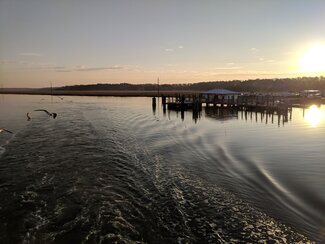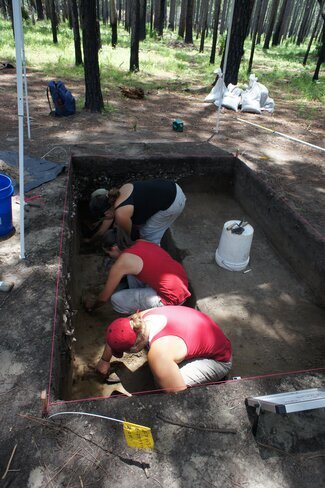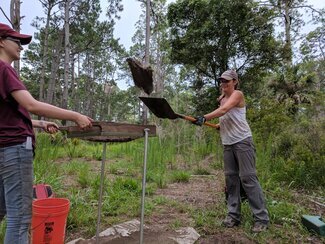ANTH 454/455: Exploring Ancestral Maya Neighborhoods
Program Description
Instructor: Dr. Lisa J. Lucero, PI, VOPA Project (ljlucero@illinois.edu)
Teaching Assistant: Yifan Wang (yifanw19@illinois.edu)
This six-week field school (May 15 - June 25, 2024) provides students with hands on experience in the techniques of archaeological survey and excavation in the context of a large research project in central Belize. The course will consist of field and lab work and weekly lectures while in Belize. The project will focus on excavating Maya houses between Yalbac and Cara Blanca.
Settlement studies inform on landscape use, rural-urban interaction, population estimates, trade networks, and other aspects about society—and center of Yalbac and its hinterlands are no different. However, a 2010 hurricane and subsequent wildfires resulted not only in loss of economically viable trees, but in the landowners, Yalbac Ranch, selling over 30,000 acres of jungle to an agricultural corporation. The ancestral Maya center of Yalbac is protected from plowing, its surrounding settlement is not. We plan a survey and excavation program with the goal of acquiring as much information as possible before continued plowing completely erases settlement. The field plans, as part of the VOPA project, will be conducted under the auspices of the Institute of Archaeology (IOA), National Institute of Culture and History, Government of Belize.
There will also be a trip to Tikal, Guatemala. Visits to other sites can be arranged (e.g., Xunantunich, Actun Tunichil Muknal, Caracol, etc.).
Program Information
Estimated cost: Approximately $6700 (includes tuition, Institute of Archaeology fee, international Insurance, lodging, meals, Tikal trip, roundtrip airfare, and $500 spending money). Of this amount, $2500 needs to be paid before departure for IOA fees, lodging, and meals.
Non-anthropology majors welcome. Individual senior capstone and other research projects possible (upon approval).
Applications are due March 15, 2024 with applicants being notified March 20, 2024. Non-majors are welcome and there are no prerequisites required.
Please find the program application here and the Program Disclaimer/Release here. Consent of instructor is required; the application is required; and the signed liability statement is required before the application will be assessed.
Please contact Dr. Lisa J. Lucero, PI (ljlucero@illinois.edu) or the course TA: Yifan Wang (yifanw19@illinois.edu) with further questions.
ANTH 454/455: U of Illinois Island and Coastal Archaeology Summer Field School
Program Description
This field school is not being offered during summer 2024.
This course is a summer archaeological field school, a hands-on learning experience in archaeology. The class introduces archaeological field techniques and outlines a critical understanding of the methods and approaches by which archaeology and heritage are interpreted. Through exercises and participation in an archaeological research project, students will be introduced to the methods of archaeological survey, excavation, data and materials recovery, recording, and processing.
Students will be encouraged to critically examine how archaeological knowledge is constructed and expressed. Because the class is held in a remote location, students are also required to learn to live and work together as a group while they contribute to the success of a long-term archaeological research project.
Location: Sapelo Island, Georgia
- Survey and excavate multiple sites on the Georgia Coast
- Investigate how the political collapse and abandonment of a neighboring region affected Native Americans living on the Georgia Coast during the 14th century.
- Work to help answer the question: How did immigrants adjust to life and community in the coastal environment?
Duration:
-
Summer Session 2
You Will Learn:
- Shovel Test Survey
- Block Excavation
- Topographic Mapping
- Shallow Geophysical Survey, such as Ground Penetrating Radar
- Research Design and Implementation
- Artifact Processing, Identification, and other Laboratory Methods
Program Information
- Download the syllabus for this course or check out the course flyer.
- Interested students need to fill the application form, sign the disclaimer and email it to Dr. Ritchison before March 31st.
Program Cost & Funding
- Cost: 6 Credit Hours + $850 Field School Fee
- Check the Registrar's website for tuition rates.
- For funding opportunities, see Liebman Engaged Anthropology Award.


